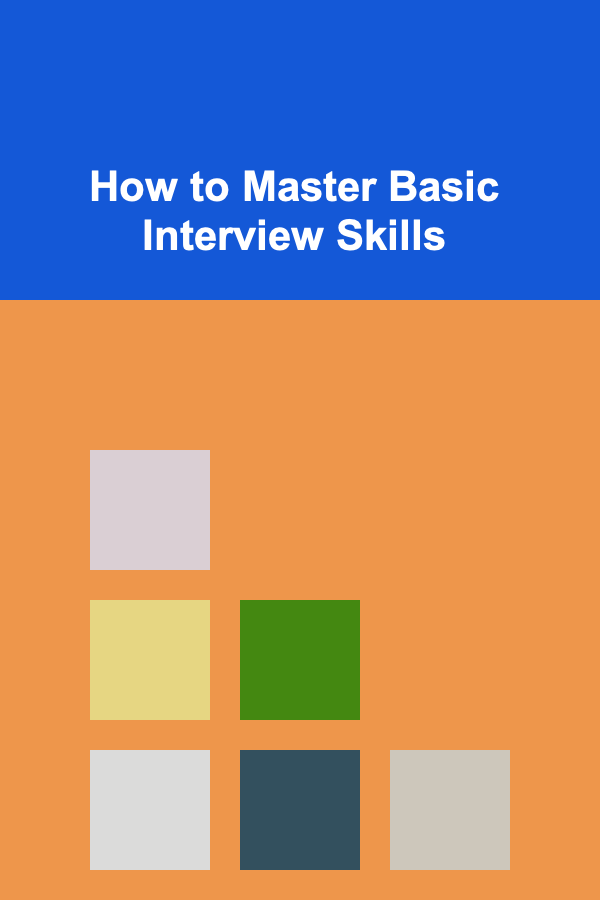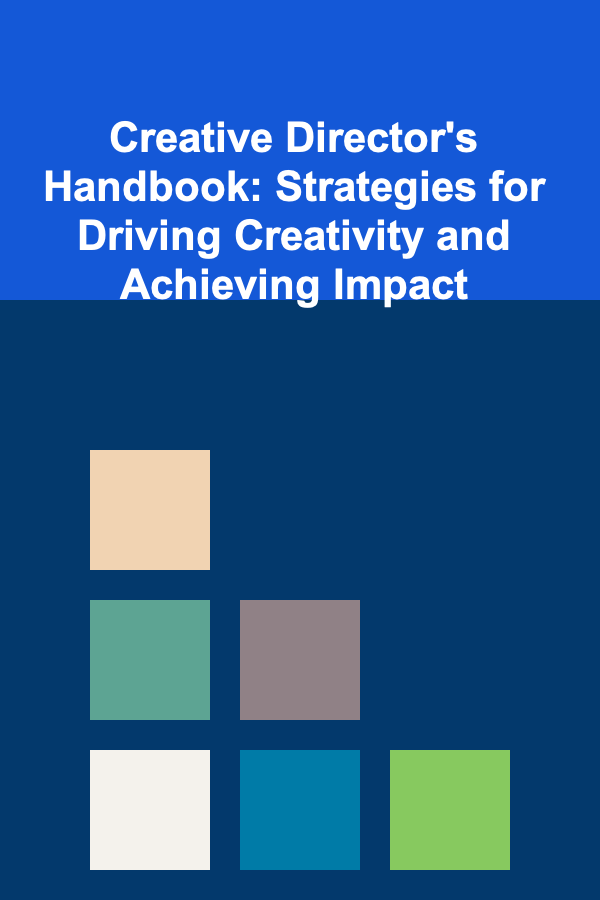
How to Master Basic Interview Skills
ebook include PDF & Audio bundle (Micro Guide)
$12.99$9.99
Limited Time Offer! Order within the next:

Interviews are one of the most critical aspects of the hiring process, often determining whether you will move forward in the job selection process or be left behind. No matter the industry, job position, or level of experience, mastering basic interview skills is essential for success. These skills allow you to showcase your qualifications, personality, and professionalism in a way that resonates with interviewers. This article explores the fundamental aspects of acing an interview, from preparation to post-interview follow-up.
The Importance of Interview Skills
Interviews are a two-way street. While they allow employers to assess your fit for a role, they also give you a chance to evaluate if the company and its culture align with your values and career goals. Strong interview skills are critical because they help you make the most of this opportunity, presenting yourself in the best possible light.
First Impressions Matter
Within the first few moments of meeting an interviewer, they are already forming opinions about you. Whether it's your body language, punctuality, or overall demeanor, making a positive first impression is crucial. The way you present yourself early in the conversation can heavily influence the outcome of the interview.
Communication Skills are Key
Interviews require clear and effective communication. The way you articulate your thoughts, explain your experience, and respond to questions reflects not only your qualifications but also your interpersonal skills. Effective communication establishes rapport with the interviewer, increases your chances of getting hired, and demonstrates your professionalism.
Boosting Your Confidence
Having strong interview skills boosts your confidence. Confidence, when paired with preparation, helps you stay calm and composed during the interview process. It ensures that you convey your qualifications assertively and answer questions without hesitation, leaving a lasting positive impression.
Preparation: The Foundation of Success
While interview skills can be honed over time, preparation is an essential step that cannot be overlooked. Thorough preparation helps you feel more confident and ensures that you're ready to answer any question with ease.
Research the Company and Role
Before walking into an interview, you should be well-versed in the company's history, values, mission, products, and services. Researching the role in depth will allow you to tailor your responses to demonstrate how your skills align with the company's needs.
- Company History and Values: Understanding the company's background, growth, and culture will help you connect your responses to their core values.
- Role Responsibilities: Carefully review the job description. Pay attention to the key skills and experience required and make a list of your own qualifications that align with those requirements.
Understand Common Interview Questions
There are several common interview questions you are likely to encounter. Some of these include:
- Tell me about yourself.
- What are your strengths and weaknesses?
- Why do you want to work here?
- Where do you see yourself in five years?
- Tell me about a time when you faced a challenge at work.
Rehearsing responses to these questions can help reduce anxiety and give you the confidence to tackle them effectively. However, it's also important to avoid sounding overly rehearsed. Aim for responses that feel natural but are also structured and meaningful.
Prepare Your Own Questions
One of the most important aspects of the interview is asking your own questions. An interview is not just about answering questions; it's also about ensuring the role is a good fit for you. Prepare insightful questions about the team, the company culture, and the expectations for the role. Asking thoughtful questions shows that you are genuinely interested and engaged in the process.
Presentation: Making a Great First Impression
How you present yourself at the interview can significantly influence how others perceive you. Your appearance, body language, and attitude all contribute to the impression you leave on the interviewer.
Dress Appropriately
The way you dress for an interview speaks volumes about your professionalism and respect for the opportunity. Although dressing for an interview can vary by industry, a good rule of thumb is to dress slightly more formal than the company's everyday attire. When in doubt, choose a smart, clean, and professional look that reflects your seriousness about the job.
- Business Formal: Suits or dresses are the best choices for formal sectors like finance, law, or government.
- Business Casual: For creative or tech industries, business casual attire (like button-down shirts or blouses and slacks or skirts) is often acceptable.
- Casual: In very casual settings (like tech startups), you may have more flexibility in your attire but remember that "casual" does not mean "untidy."
Maintain Positive Body Language
Your body language during an interview is an essential component of communication. Positive body language can help you appear more confident and engaged.
- Posture: Sit up straight, but avoid stiff or overly rigid positions. Relaxed yet upright posture conveys confidence.
- Eye Contact: Maintain eye contact with the interviewer to demonstrate engagement and confidence. However, avoid staring too intently, as it may be perceived as aggressive.
- Smile: Smiling can make you appear more approachable and friendly, creating a positive atmosphere during the interview.
- Gestures: Use natural hand gestures to emphasize points, but avoid excessive or distracting movements.
Control Nervous Habits
It's natural to feel nervous during an interview, but it's important to manage those feelings to ensure they don't negatively impact your presentation. Be mindful of nervous habits such as fidgeting, tapping your foot, or playing with your hair. Practice deep breathing before the interview to calm your nerves and maintain composure throughout the conversation.
Answering Interview Questions
Once the interview begins, it's time to put your preparation into action. How you answer questions is a key indicator of your qualifications and suitability for the position.
The STAR Method: Structuring Your Answers
When answering behavioral questions, the STAR method can help you structure your responses in a clear and concise manner. The STAR acronym stands for:
- Situation: Describe the context or situation you were in.
- Task: Explain the task you were assigned or the problem you needed to solve.
- Action: Detail the steps you took to address the situation or complete the task.
- Result: Conclude by sharing the outcome of your actions and any lessons learned.
This approach ensures that you provide comprehensive answers that showcase your problem-solving skills and your ability to achieve results.
Focus on Your Strengths
Interviewers often ask about your strengths, and this is your chance to highlight qualities that are relevant to the job. When talking about your strengths, provide specific examples to demonstrate your abilities in action. Make sure to tie your strengths back to the needs of the role and explain how they make you an ideal candidate.
Addressing Weaknesses
When asked about your weaknesses, it's essential to strike a balance between honesty and self-awareness. Rather than listing a major flaw, mention a minor weakness and discuss the steps you're taking to improve it. This shows that you are reflective and proactive in your self-development.
Stay Positive
Even when discussing challenging experiences or weaknesses, always keep a positive tone. Avoid speaking negatively about previous employers, colleagues, or jobs. Instead, focus on what you learned from the experience and how it helped you grow.
Post-Interview Etiquette
Your actions after the interview are just as important as your performance during it. Demonstrating professionalism and gratitude can leave a lasting impression.
Send a Thank-You Note
Within 24 hours of the interview, send a thank-you email to the interviewer. A well-crafted thank-you note expresses gratitude for the opportunity and reinforces your interest in the position. It's an opportunity to reiterate a key point or skill you may not have emphasized enough during the interview.
In your thank-you note, be concise and respectful. Here's an example:
Thank you for taking the time to interview me for the [Job Title] position at [Company Name]. I enjoyed learning more about the team and the exciting work being done at [Company Name]. I am even more enthusiastic about the opportunity to contribute to the team and leverage my [specific skill or experience] to make a positive impact.
I appreciate the opportunity to discuss how I can contribute to [Company Name]. Please feel free to reach out if you need any additional information.
Best regards,
[Your Name]
Follow Up If Necessary
If you haven't heard back within the time frame the interviewer mentioned, it's appropriate to follow up. A polite follow-up email can reaffirm your continued interest in the role and request an update on the hiring process.
Stay Patient and Positive
Hiring decisions can take time, so be patient after your interview. While waiting for feedback, focus on your job search and keep applying to other opportunities.
Conclusion
Mastering basic interview skills is an invaluable asset that can set you apart from other candidates. By preparing thoroughly, presenting yourself confidently, answering questions effectively, and following up professionally, you increase your chances of making a positive impression and securing the job you want.
Remember that interviews are an opportunity to showcase your strengths and learn more about potential employers. With each interview, you'll refine your skills and become more adept at navigating these crucial conversations, ultimately improving your chances of success in any professional setting.

10 Effective Ways of Saving Money on Entertainment Subscriptions
Read More
Creative Director's Handbook: Strategies for Driving Creativity and Achieving Impact
Read More
How to Plan a Perfect Home Cocktail Party
Read More
How to Sell Digital Products Successfully for IT Consultants
Read More
How to Use Property Management to Make Money
Read More
What Are the Most Effective Ways to Sort and Store Toys?
Read MoreOther Products

10 Effective Ways of Saving Money on Entertainment Subscriptions
Read More
Creative Director's Handbook: Strategies for Driving Creativity and Achieving Impact
Read More
How to Plan a Perfect Home Cocktail Party
Read More
How to Sell Digital Products Successfully for IT Consultants
Read More
How to Use Property Management to Make Money
Read More